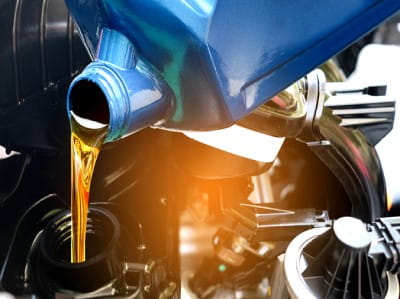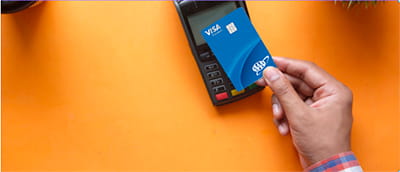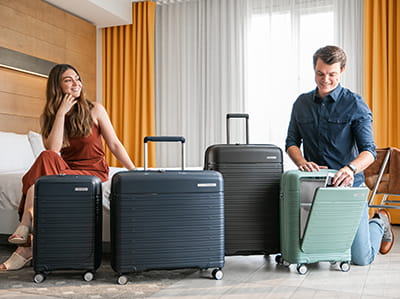Mark Madeja
Senior Specialist, Public & Government Affairs
O: (918) 748-1074
C: (918) 935-9318
Mark.madeja@aaaok.org
Friday, September 8, 2017 ––Up to one million vehicles were submerged, soiled and spoiled by Hurricane Harvey’s catastrophic floodwaters. That is twice the number of vehicles despoiled by Hurricane Katrina and destroyed by Superstorm Sandy combined. Even more vehicles could be ruined in the storm surge of Hurricane Irma, which is rapidly approaching Florida and the Southeast U.S. coast. Whenever a major hurricane triggers flooding, tens of thousands of vehicles, which have been totaled by auto insurers, are slipped out of an impacted area. In so many instances, flood-damaged vehicles end up on the used car market. Often the buyer is unaware the vehicle has a “salvage title,” or the title has been “washed.”
Many of those vehicles damaged by the back-to-back cyclones may soon end up for sale in other parts of the country, including Oklahoma, National Insurance Crime Bureau (NICB) are warning. Once the deluged autos are meticulously dried out, scoured, and scrubbed, and the title is “washed,” they are sold in other states by unscrupulous sellers and fly-by-night operators. AAA is warning potential buyers to “always physically inspect the vehicle’s paper title before you buy.”
“Use your five senses to detect telltale signs a vehicle has been flooded. Then use your sixth sense,” said Mark Madeja, Spokesman for AAA Oklahoma. “Look for a waterline under the hood, undercarriage and bumpers; for mud and debris inside the cabin and trunk; for signs of rust, and for fogging inside the headlights and taillights. Use your sense of smell to detect the scent of disinfectants or cleansing agents used to cloak musty smells or mold or mildew. Touch the carpet or floor mats for residual traces of wetness or for signs that the carpets, seats and interiors were recently shampooed.”
“Listen to the engine to check if it runs smoothly, or runs rough, or makes abnormal noises as it runs. Also listen to the sound system, to check if the electronics are working properly, because some mechanical and electronic components don’t survive flooding,” Madeja added. “Curiously, the term ‘lemon,’ a slang first used to describe a ‘worthless thing’ and then ‘a defective car,’ stems from a metaphor for ‘something that leaves a foul or bad taste in your mouth.’ That could happen to you if you buy a flood-damaged vehicle.”
“Then rely upon your intuition, instincts, and ‘that gut feeling.’ Flooded cars are not always totaled and 50 percent are eventually resold. But most of all, use your common sense, and always purchase a vehicle history report or obtain a free VIN report for any vehicle suspected of having a watery past,” said Madeja.
Before buying, check to see if the vehicle was flooded, using VINCheck at www.nicb.org. The trouble is most unsuspecting car buyers don’t know the “difference between a ‘salvage title’ and a ‘flood title,’” warns the Federal Trade Commission (FTC). It can make all the difference in the world. The FTC describes the difference this way: “A ‘salvage title’ means the car was declared a total loss by an insurance company because of a serious accident or some other problems. A ‘flood title’ means the car has damage from sitting in water deep enough to fill the engine compartment. The title status is part of a vehicle history report.”
“Let the buyer beware” (caveat emptor) is the age-old watchword for consumers to abide by when they find deals too good to be true on used or new vehicles for months to come. Consumers should also be wary of websites that allow car buyers to bid on salvage flood damage vehicles. Here is a word to the wise: Carfax estimates 275,000 “flooded cars were back in use across the USA” last year. The title is often “laundered” across state lines. Chances are you probably won’t know a car is flood-damaged until you have it checked by a mechanic you trust, warns AAA. That is the first thing you should do.
“The car’s electrical system is particularly vulnerable to flood water damage,” Madeja warned. “Engine computers, sensors and other electrical devices can sometimes be salvaged but unless they are thoroughly cleaned and dried, problems caused by corrosion and oxidation may occur months after a flood.”
In a six day period, it is estimated Harvey dumped “27 to 33 trillion gallons of rainfall” over Texas and Louisiana, and other states. Wreaking havoc, Harvey reportedly damaged between 300,000 to 500,000 individually owned vehicles in the Houston area, which has one of the highest percentage and rates of vehicle ownership in the nation, estimates suggest. It remains to be seen how many vehicles will be destroyed by Irma.
Thousands of hurricane-ravished vehicles are being totaled by insurance companies and will end up at the scrap yard. Untold numbers of flood-damaged vehicles will turn up on the auction block. When Harvey hit, a third of car owners in the Houston area did not have comprehensive auto insurance, says Consumer Reports. Those who didn’t, have little hope of recovering the loss of their flood-ravaged vehicles.
Here are some tips:
- Obtain a CARFAX Vehicle History Report – This report can potentially reveal if the vehicle has been involved in a flood, major crash, fire, or uncover odometer fraud.
- Conduct a title search of the vehicle. Check the VIN number at VINCheck.
- Check the vehicle’s VIN with appropriate government agencies or your state bureau of motor vehicles.
- Analyze the ownership pattern for any new or late model vehicle with no lien holder.
- Be careful about purchasing a used vehicle from an individual running a newspaper ad and using a cell phone number. Check for title or registration histories indicating the car was in a flood area.
- Look for information from a vehicle’s current title, including the vehicle's brand history. “Brands” are descriptive labels regarding the status of a motor vehicle, such as “junk,” “salvage,” and “flood” vehicles.
- Look for any reports of the vehicle being transferred or sold to an auto recycler, junk yard, or salvage yard. Select a reputable car dealer when buying a used vehicle in the aftermath of disasters.
- Look for the latest reported odometer readings to detect odometer tampering or fraud.
- If possible, have your insurer check to determine if the vehicle was previously insured in a flooded area.
- Trust your instincts. If you don’t like the answers or the deal sounds too good to be true, walk away!
In the wake of Harvey, hundreds of thousands more vehicles were reportedly ruined on bona fide car dealership lots in the region, according to the Black Book. In contrast, Hurricane Katrina, which occurred 12 years ago, is thought to have destroyed 200,000 vehicles. After Super Storm Sandy, it was estimated a quarter of a million vehicles were flooded and subsequently scrapped. Will Irma wreak havoc on this scale? Harvey is said to have dropped enough rain, 30 inches or more, to cover an area the size of the state of Maryland. Always have a vehicle inspected by a quality repair facility, such as a nearby AAA Approved Auto Repair facility. This could save you considerable money and heartache down the road.
AAA provides automotive, travel, and insurance services to 57 million members nationwide and more than 400,000 members in Oklahoma. AAA advocates for the safety and mobility of its members and has been committed to outstanding road service for more than 100 years. AAA is a not-for-profit, fully tax-paying member organization works on behalf of motorists, who can now map a route, find local gas prices, discover discounts, book a hotel, and track their roadside assistance service with the AAA Mobile app (AAA.com/mobile) for iPhone, iPad and Android. For more information, visit www.AAA.com.
www.facebook.com/AAAOklahomawww.twitter.com/AAAOklahoma
If you would rather not receive future communications from AAA Oklahoma, let us know by clicking here.
AAA Oklahoma, 10051 S. Yale Ave. Suite 106, Tulsa, OK 74137 United States
Related Articles
Leslie Gamble
Manager, Public & Government Affairs
O: (405) 753-8040
C: (405) 488-7611
Leslie.Gamble@aaaok.org







